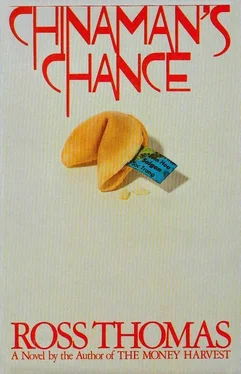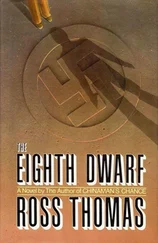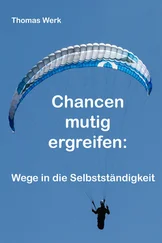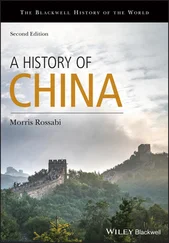The two men inspected the well-cut jacket, the dark slacks, the tasseled loafers, and the gray oxford-cloth shirt with the slightly loosened foulard tie. Durant thought McBride looked about as believable as Steve McQueen would look playing a reporter, but he didn’t say what he thought. Instead, he said what Eddie McBride wanted to hear: “You look like a reporter, Eddie. A smart one.”
McBride looked at Wu for further confirmation. Wu nodded slowly, even judiciously. “Get me rewrite, sweetheart,” Wu said.
“What the fuck’s he talking about?” McBride asked Durant.
Durant smiled. “A very old play.”
“You look great, Eddie,” Wu said. “Just right.”
As if in need of additional evidence, McBride opened the door of the living-room closet and examined himself in its full-length mirror, pulling the loosened tie down another careful half inch.
While McBride was inspecting himself in the mirror, Durant said, “When you and Simms — or Childester — were lifting the money in Saigon, did you help him make the actual switch?”
McBride shook his head, still examining himself in the mirror. “Nah, he had that part all done. What he needed me for was to take down the screens over the air-conditioning ducts. We had exactly two minutes the way he had it figured.”
“But he had the money all switched and ready, right?”
“Yeah, why?”
“I was just curious how you worked it,” Durant said.
McBride turned and looked at Durant for a moment, the younger man’s skepticism obvious. But then a thought struck McBride. “Jesus,” he said, “I almost forgot.”
He turned and went into the kitchen. When he came back he was carrying two packages of frozen vegetables. He handed Wu a package of Green Giant frozen peas, and Durant got the same brand of frozen broccoli.
“What’s this?” Wu said.
McBride grinned. “Overby said you might have to warm ’em up a little — you know, like in a pan.”
Wu ripped open the box of peas and took out a short-barreled .38 Colt revolver. Durant’s box of broccoli contained the same thing.
“That’s where the guy kept ’em,” McBride said. “He had this little store over in North Hollywood and he kept them in the back in a refrigerator. He—”
“Eddie,” Wu said.
“Yeah?”
“You’d better get going.”
“Yeah, okay.”
McBride examined himself for the last time in the full-length mirror and then went to the door, where he paused and looked back at Wu and Durant. “What do I do if I don’t find her?”
“You’ll find her,” Durant said.
“Yeah,” McBride said. “Sure.” And left.
When the door closed, Durant looked at Wu. “What do you think?”
“About the purloined two million?”
Durant nodded.
“I think,” Wu said slowly, “that it’s all beginning to make just a little more sense.”
“Just a little,” Durant said.
When McBride came out of the Sandpiper Apartments that morning at 9:32, Solly Gesini was on his second can of Tab, having already polished off most of the M & Ms. When he saw McBride he turned down the country-Western music, as though the absence of sound would help him see better.
Gesini watched as McBride crossed the street and took an overparking ticket from under the windshield wiper of his 1965 Mustang convertible, the someday-soon classic that he had rescued from its abandonment in Venice. As he watched McBride stuff the ticket away in a pocket, Gesini started the engine of his Oldsmobile.
McBride got into his car, started it, and pulled away from the curb. Gesini waited until another car came by and then shot the Oldsmobile out of the lot after the car of the man he was going to kill, with any luck at all, that very morning.
Otherguy Overby sat patiently in the chrome-and-leather chair and watched the man who looked like a male model count the ten thousand dollars. Every time his count reached another thousand, Chuck West would look up at Overby and smile a little helplessly, as though to say that while he knew it was all there, he still had to make sure, and he was confident that Overby would understand and bear with him.
West was counting the money on to the top of his grimly contemporary desk in the sizable office that he held down for Reginald Simms, Inc., Consultants, on the fifteenth floor of the Ransom Tower. Overby thought that West was as grimly contemporary as his office, and he had already dismissed both as being second-rate Sunset Boulevard.
When he finished counting, West looked up at Overby and gave him his beautiful-person smile. “Right on the nose, Maurice.”
“Maurice?” Overby said with a puzzled smile, “Did you call me Maurice? Not many people call me Maurice anymore.”
“What do they call you, Maury?”
“They call me Mr. Overby,” he said in a flat tone. “Sometimes for years.”
Chuck West stared at Overby for a moment, and behind the beautiful hair and the beautiful tan and the beautiful teeth Overby caught a glimpse of something else that was not so beautiful, but instead quite ugly and just a little sinister.
“I’ll call you anything you like, mister,” West said. He picked up his phone and dialed two numbers. When the phone was answered he said, “Mr. Overby is here and we’ve just finalized his consultation fee.” There was a pause and then West, “No... cash.” After another pause, West said, “Yes, how very true.”
After he hung up the phone, West didn’t tell Overby what was very true. Instead, he rose and said, “I’ll take you in to Mr. Simms now.”
Overby liked the view that Reginald Simms had of the ocean, but that was about all he liked. He immediately marked Simms down as a smooth, smart bad-hat, which didn’t bother him at all because Overby found smooth, smart bad-hats an interesting challenge. But anyone who would have a fire in his office in June must have a few soft spots that Overby decided might well be worth probing. Overby thought the fire a silly affectation.
After Chuck West made the introductions and left, Simms gestured Overby toward one of the high-backed leather chairs that flanked the fireplace.
“Do you like a fire even in June, Mr. Overby?” Simms said after waiting for Overby to sit down.
“They’re comforting anytime,” Overby lied, choosing his words carefully.
“You approached us first — let’s see, when was it — two months ago?” Simms said, pouring coffee into two bone-china cups from a silver pot that rested on a table near his chair.
“About then,” Overby said, accepting a cup.
“And you represent a small syndicate of investors?”
“It’s not so small.”
“I mean the number of investors, of course, not the amount of their proposed investment. A million dollars is still a very respectable sum.”
“You’re not exactly dragging your investors in off the street by the arm,” Overby said. “Not if you charge ten thousand dollars just to talk.”
“Try to think of it as earnest money,” Simms said. “It separates the idly curious from the totally serious. You are totally serious, aren’t you, Mr. Overby?”
“I’ll let the ten thousand dollars speak for itself. I didn’t drop by just for the small talk.”
Simms drank some of his coffee, produced his cigarette case, offered Overby one, and when Overby accepted it, lit it for him. After he had lit his own, Simms blew the smoke out, fanned it away before the air conditioning had a chance to get at it, and said, “You’ve been looking around our little town these last two months, I understand.”
“That’s right.”
“And what have you discovered that’s interesting?”
Overby decided to see how Simms would handle a hard, fast one, low and inside. “What I’ve discovered that’s kind of interesting is that Vince Imperlino has a lock on this town and you’ve got the key to the lock.”
Читать дальше












